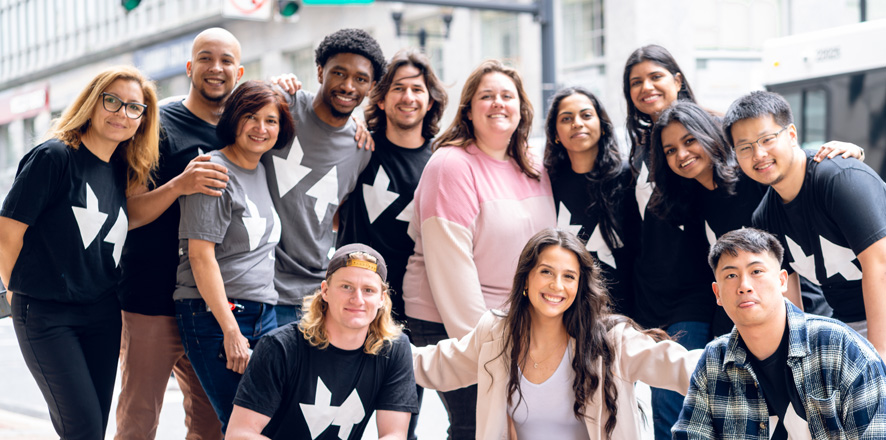Learn five ways that coding will help empower the next generation to innovate, analyze and communicate.
It’s safe to say that the next generation is tech-savvy, but empowering them in code is the next step to success.
When recent 2017 Zip Code Wilmington graduate, Latasha Watson shared her story on the impact of learning code it included an unexpected twist. Not only was Latasha able to start a new career and make better money to support her family, but she was also able to introduce her 15-year-old daughter to coding. Her teen enthusiastically incorporated coding into games and apps. The duo even worked together to create an app to update grocery lists and household chores.
Watson was able to provide her daughter the tools to create and and problem-solve in a technology-driven world.
Today in schools, students learn on digitized smartboards. They access textbooks online, and hold discussion groups virtually or teleconference, which allows them to connect from anywhere in the world. “Pen pals” are no longer connecting via handwritten notes and polaroids but through social media sites like SnapChat where users can share each minute of their day through video and emojis.
Young people are avid consumers of media such as websites, apps, gadgets and electronics. But with acceleration, they are also interested in customizing and creating these things themselves, from creating interactive experiences online, to working with electronics to create accessories for their smartphones or Raspberry Pi computers.
Learning to code goes beyond learning a new skill — programming provides coders the opportunity to apply their knowledge to solve problems. Those solutions can be as simple updating graphics on a website, but they can extend to life-changing programming that assists in more efficient hospitals, or better technology in urban planning. It is imperative that students have the chance to be immersed in what science, technology, engineering, and math (STEM) fields have to offer — learning to code is often the connector to each of the segments. Programming allows students to develop anything imaginable.
Five reasons the next generations should be empowered by coding:
- Programmers are in high demand. Learning to code will increase a student’s odds of securing a career in STEM, in a world where computing jobs are growing at more than twice the national average.
- Set them up to have a competitive advantage. Education programs, internships, and all jobs are looking for coders.
- Ability to innovate the world around them. Students with coding knowledge are able to produce and not just consume the technologies of today and tomorrow.
- Coding improves problem solving and critical thinking. When students code, they take complex problems and break them down into smaller pieces. They learn to approach a problem the way a software engineer does, with logical, computational thinking.
- Coding improves communication. Communication is an essential skill throughout school, work and life. People who can clearly communicate complex ideas in simple terms tend to be successful in different industries and walks of life.
Coming soon, Zip Code Wilmington will include a new segment designed to prepare and position the next generation of coding leaders to further impact the technology industry. Stay tuned for more information.
Cites:
https://www.nesta.org.uk/news/2015-predictions/programming-new-generation-digital-makers
https://dmlcentral.net/programming-power-does-learning-to-code-empower-kids/
https://www.empower-throughcode.com/why-etc/
https://codingitforward.com/
https://www.smithsonianmag.com/innovation/is-coding-the-new-second-language-81708064/
